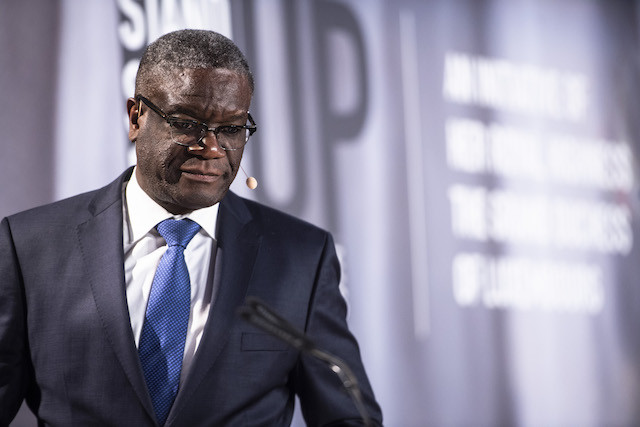The Panzi Hospital, based in Bakavu in the Democratic Republic of the Congo, uses a holistic approach to treat survivors of violence, many of whom have been sexually abused. Dr Mukwege is not only its founder but also its medical director.
In his 26 March keynote speech, Mukwege said there was a need for victims to have a “one-stop centre” where they not only receive critical medical attention, but also have access to psychiatric care and counseling, as well as therapy in the form of dance, music, narration or leisure outings.
“Care is confidential, centred on one person, and the person only has to explain their story once,” he added. This removes the burden of the survivor of sexual violence to have to repeat and relive her story each time. The survivor then chooses the service(s) required, with staff help if necessary.
However, in the past the hospital has struggled with resources and funding. The Luxembourg Red Cross will aid in the extension and modernisation of the hospital’s infrastructure. The local organisation already has some 15 years' experience in similar projects, for example the Kalembe Lembe Pediatric Hospital in the Congo and a number of hospitals in the Ukraine.
The project includes the construction of a three-floor building to accommodate 260 beds. Another area, which currently has space for 60 beds but is occupied by 200 beds, will be enlarged, as will the consultation/emergency room. The operating room facility will also be doubled. Additional renovations will include improvements to the HIV ward.
In addition to being a centre of excellence for sexual violence and genital trauma victims and micro-invasive surgery, the hospital also serves as a reference facility in healthcare.
“Education is the source of prevention,” Mukwege said. “We must initiate boys to become positive men, to promote positive masculinity and discourage toxic masculinity.”
Mukwege added that when he began working with survivors, he felt “very small,” adding: “I’ve felt powerless in our duty to protect women in fragile environment situations. But their strength gives me hope.”
